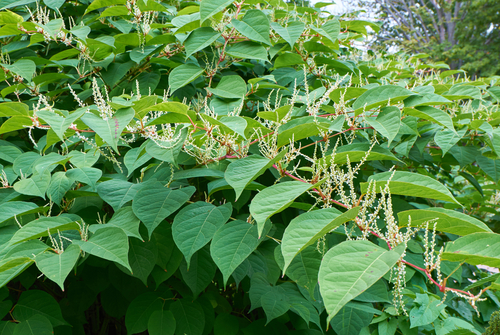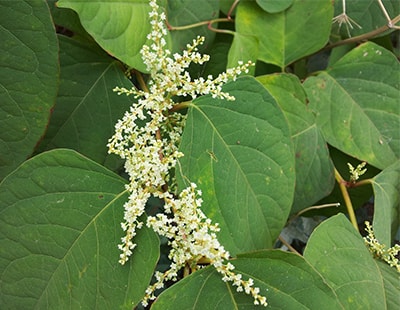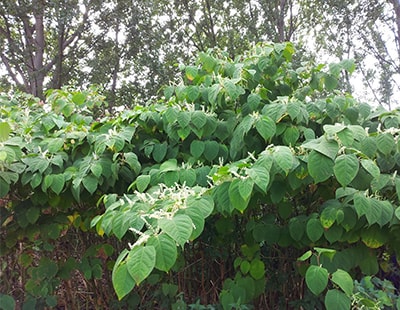UK homeowners fork out roughly £1,800 on average to control Japanese knotweed infestation, while 10% lose over £4,000 because of its presence, new research from Crop Protection Association has revealed.
The study found the knotweed is costing homeowners thousands of pounds, with 20% claiming it caused the value of their house to drop and 60% seeing the weed damage their garden or destroy something on their property.
The findings also show a lack of knowledge of the legal and financial risks surrounding knotweed.
Only 23% of homeowners surveyed said they know how to dispose of the plant, while only 11% know you can receive an ASBO for failing to control it. Moreover, 23% are aware that you can be sued by your neighbour if the infestation stems from your property.
Sarah Mukherjee, chief executive of the Crop Protection Association, commented: “Japanese knotweed can lead to major, exacerbating flood risks. It’s important that experts have access to the most effective treatments available.”
Having thrived in the UK as an ornamental plant in the 1820s, Japanese knotweed has become one of the most damaging invasive species to arrive in the UK. The findings come after Baroness Sharples questioned the government on eliminating knotweed from the UK and just before EU members are set to vote on the ban of knotweed’s most effective treatment, glyphosate.
The European Chemicals Agency (ECHA) and European Food Safety Authority (EFSA) plan to vote against renewing the licence for glyphosate use in Europe due to pressure from green activists. Despite their understanding that glyphosate is safe for consumers, the herbicide may be banned from December 2017.
David Layland, founding member of the Invasive Non-Native Species Association, suggests the process of excavating Japanese knotweed without glyphosate would become costlier, less effective, and less environmentally friendly.
He said: “Glyphosate is scientifically proven to be safe to use, but many of the alternatives are less effective and cannot be used near water.”
Without glyphosate, it is claimed that many homeowners will find it difficult to deal with knotweed on their own. In fact, not many homeowners would recognise the weed if they saw it, despite there now being an infestation every 10km in the UK. Some 17% of those taking part in the survey claimed to have a good understanding of the weed, however, 72% admitted to not knowing anything about it.
The weed can regrow from stem residue, known to only 43% of homeowners, while only one in five know it can regrow after lying dormant for up to 20 years. Just over one in three are aware that the roots can extend up to three metres in depth.
To successfully rid of the weed, homeowners will need the glyphosate to translocate through the plant and allow it to decay. Layland, also the managing director of specialist remediation company, Japanese Knotweed Control, believes glyphosate is the safest option.
He added: “If the license isn’t renewed, our only hope is that before the end of the phasing-out period for contractors, there will be a new formulation developed and licensed.”
James Sherwood-Rodgers, chairman of the Invasive Non-Native Specialists Association (INNSA), said: “INNSA and its members would welcome closure on the glyphosate debate. Without a clear decision uncertainty is created in the invasives sector, and heightened by the prolonged timescale of the voting process and hyperbolic media coverage of the product.”
He added: “We hope that the on-going debate within the EU parliament is resolved quickly so that invasives specialists can continue to use glyphosate to tackle the nation-wide problem of non-native weed infestations.”









.png)








Join the conversation
Jump to latest comment and add your reply
Glyphosate has NOT been scientifically proven safe (whilst it might be "to consumers" [presumably 'users' ?] it is far from safe to the environment and, MOST importantly, from the damage it does within the food-chain to every single one of us). The opposite is thus true; albeit, proper decent research is - of course - buried by the likes of Monsanto, a firm (with massive lobbying power) that makes $billions out of its worldwide sales, via 'Roundup' - its allegedly evil and highly damaging product.
Please login to comment